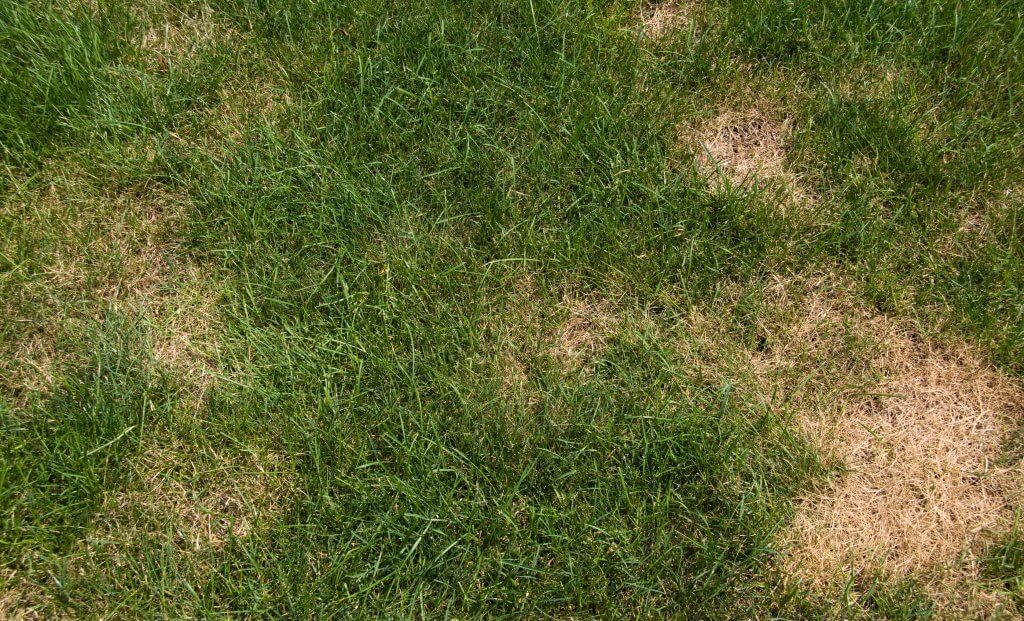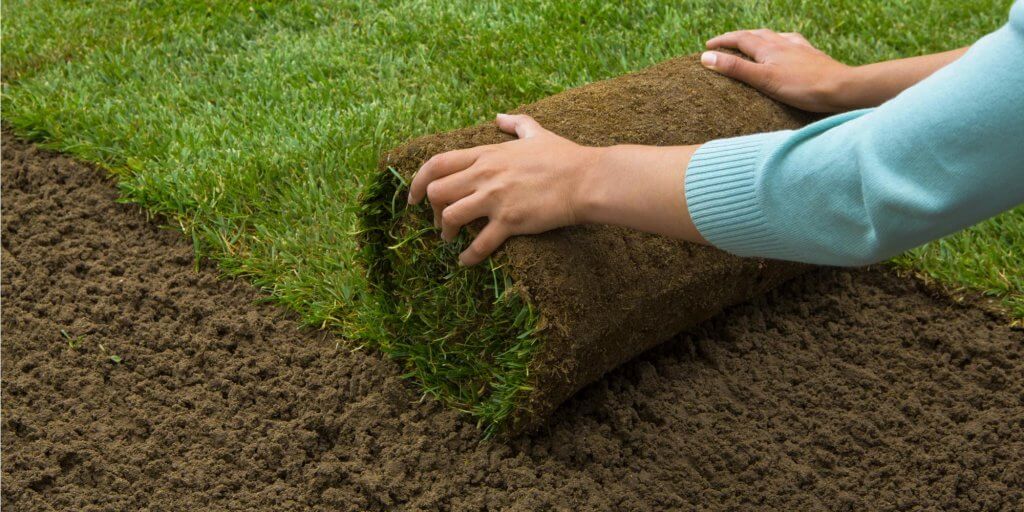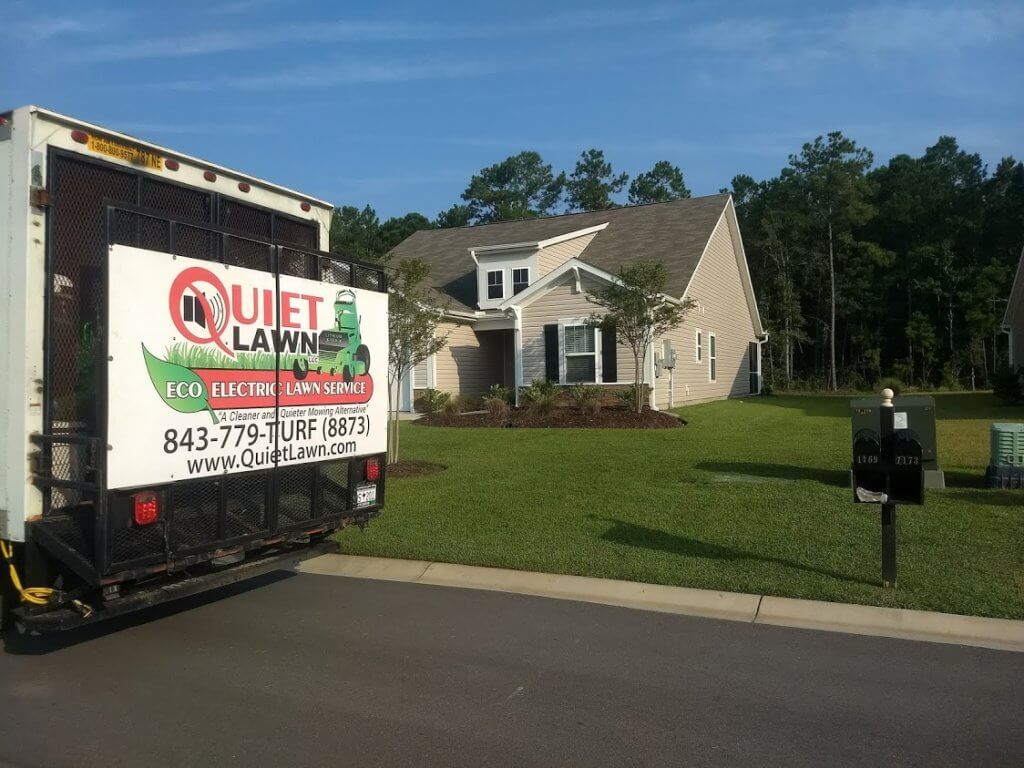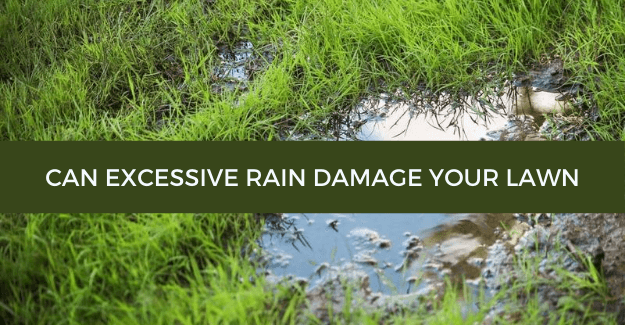Have you ever noticed that your grass turns brown after days of heavy rainfall? When the rain water seeps into the soil the plants absorb nitrogen causing the leaves to green up, becoming lush and healthy. Rainfall saves you a lot of watering time and energy as well. Furthermore rain water is heaps more healthier for grass as it lacks chemicals present in tap water. In spite of the plentiful pros of rainfall for lawns, excessive and frequent rain can have an adverse effect. Excessive rain can damage your lawn by causing brown patches to appear. Having the lawn too wet for a long period of time causes diseases such as the brown patches appearing.
Unfortunately, it has been raining very frequently in Little River, South Carolina for the past couple of weeks. This appears to be an unusual weather pattern as the current expected weather was supposed to be warm and dry. The continuous rainfall throughout the summer months is causing lawns to stay soaked for weeks which can be very damaging for lawn health.
Disadvantages of heavy rainfall in lawn
- Lawn disease: excessive water in the soil can cause the grass roots to start rotting. It causes fungal growth due to the extreme moisture being their ideal habitat to thrive in. You can recognize the disease through yellow or brown spots appearing throughout the blades of grass in your lawn. You might even notice the growth mushrooms on your lawn and not the edible kind sadly.

- Drowning roots: during summer months the presence of the heat and humidity combined with heavy rain can obstruct grass growth. Oxygen is a vital element for grass growth, but excess water retention can block it from entering into the soil and reaching the roots. This tampers the photosynthesis process leaving you with stunted grass growth.
- Shallow root system: when there is an abundance of water in the soil the grass roots do not have to grow deep for accessing ground water which makes the root system grow shorter. Once weather conditions become drier, they can no longer reach the groundwater due to the short roots causing them to dry out and forming brown patches above ground. Such a weak root system makes them even more susceptible to pests and diseases.
- Weed Growth: excessive rain can damage your lawn grass. However, it aids in weed growth. It gives nourishment for weeds causing them to growth and take over your lawn. Even if you have used herbicides to prevent and kill them the rainwater can comprise the effectiveness by washing away the herbicides. Moreover, this overflowing water washes away nutrients which would have otherwise been absorbed by the plant roots as their food.
How to reduce rainfall damage on your lawn
When it comes to mother nature, we are left with little to no control over the situation. We cannot stop the rain but we can take measures to limit the damage.
- First and foremost, you need to make sure your lawn has a good drainage system to drain out the excess water. Walkout into your lawn after heavy rainfall and look for areas that are pooled with water. These are the areas that need to be fixed through re-sodding for better drainage. One such area is between two properties where the grass is graded together. Ensuring a proper drainage system in your lawn can help solve this issue to a noticeable extent. Click here to learn more ways of combating the flooding in your lawn.

- The second thing you need to make sure is to leave the sprinklers off for a while and avoid any additional watering until the excess water on your lawn dries out.
- And finally, keeping an eye on the weather forecast and applying fertilizer and herbicides accordingly will avoid wastage of resources and money.

At Quiet Lawn, we employ a coordinated Weed Control and Fertilization program based off the weather forecast. If you are looking for such lawn ant control services in Longs, SC be sure to give us a call at 843-779-8873.


